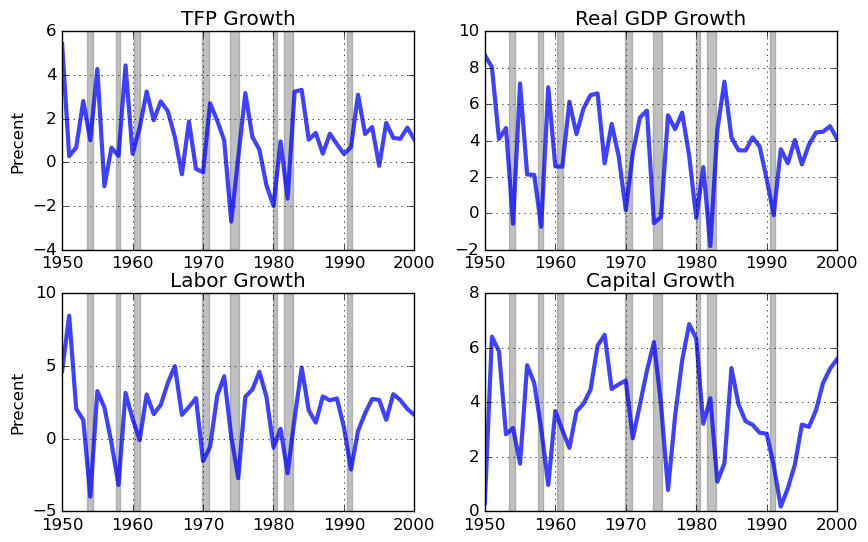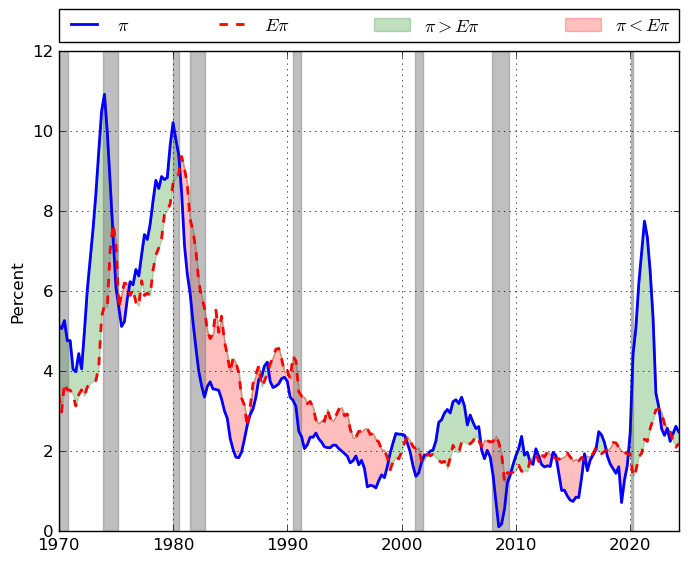Production Data
The following are links to csv files containing selected data from the US National Income and Product and Product Accounts (NIPA) and a constructed measure of the US capital stock:
- Annual: levels and growth rates
- Quarterly: levels and growth rates
 Source: Federal Reserve Economic Data - FRED.
Source: Federal Reserve Economic Data - FRED.
